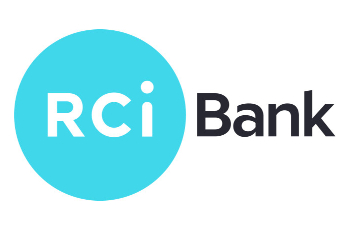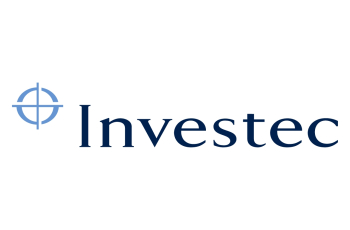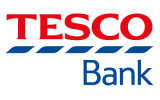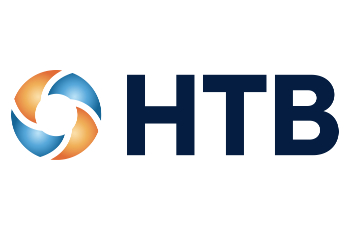This comparison simply includes all savings accounts.
Savings Accounts For Over 50s
Compare Savings Accounts For Over 50s
When putting your money into a savings account, you need to consider how long you intend to save for and how much of a return you would like to see. You can then compare the different types of savings accounts available to see which ones best match you saving goals.
If you are looking for over 50s savings accounts options see the table above.
If you are a saver over 50 then it is possible that your priorities have recently changed, especially if you have a family.
It may be time to consider your financial future over the next few years and what the best strategy is to get the most out of your savings.
It is likely that you will want to access competitive interest whilst staying flexible; therefore, it may be in your best interest to use a combination of the accounts below.
By using a mixture of accessible savings accounts and accounts that require a little more commitment, you could allow your savings to grow whilst being able to make withdrawals when necessary.
Current Accounts
Current accounts generally offer the best rates of interest for smaller sums of money. However, if you go over your account’s interest limit, your remaining balance will likely earn you nothing.
To get the best deal, you may have to shop around and be willing to transfer your current account to a new provider. It’s also worth bearing in mind that some current accounts offer a better interest rate during an introductory period which then drops dramatically once that period is over.
Instant Access Savings Accounts
This type of account allows you to earn interest on your savings while still giving quick access to your money when necessary. Some instant access accounts come with a card that lets you draw money out at cash points, others require you to take money out in branch or transfer it to a current account online or by phone.
If are likely going to need to use some of your savings at some point in the near future, instant access accounts may be your best option. Although the interest rates aren’t very high, they do allow you to withdraw from your savings at your convenience.
Please be aware there may be a limit on how many withdrawals you can make per year without losing some of your interest.
Easy Access Savings Accounts
Essentially the same as instant access accounts, except there may be a few days' delay when you wish to take money out. This is to allow withdrawal and transfer requests to be processed.
Some providers also refer to their instant access accounts as easy access accounts.
Notice Savings Accounts
These are similar to easy access and instant access savings accounts, except you have to give a certain amount of notice before removing funds. Common notice periods range from 40-95 days. The longer the notice period you are willing to give, the higher the interest rate you will usually receive.
Regular Savings Accounts
If you want to put away a little bit of money each month over a longer period, a regular savings account is likely to be the best choice. This kind of account usually requires you to deposit a minimum amount each month and will normally specify a maximum you can put in each month as well. There may also be a limit on how many withdrawals you can make each year.
Regular savings accounts often offer very attractive rates of interest, but it is important to note that, because you are only slowly building up capital, your initial yearly returns may be modest. This means that, while they can be used for short term savings, regular savings accounts are usually a better choice for longer term savings.
Fixed Rate Bonds
Fixed rate bonds tend to offer attractive rates of interest which will be guaranteed for the life of the bond (typically 1-5 years). The caveat here is that you cannot usually take money out of the bond until it matures (i.e. reaches the end of the fixed interest period).
This means most fixed rate bonds are not ideal for short term savings, although some providers do offer fixed rate bonds with terms as short as 3 months which may be worth considering.
If you are comfortable with tying up your savings for the long term, then fixed rate bonds may be a good option for you. Their competitive interest rates may be able to help you get the best returns on your savings.
Cash ISAs
UK tax payers normally have to pay tax on any interest they earn on their savings. However, a cash ISA allows you to earn interest, tax-free, on deposits up to an agreed yearly limit. For the 2017/18 tax year that amount is £20,000.
There are two main types of cash ISAs – instant access and fixed-term. Instant access cash ISAs allow you to withdraw money whenever you need without paying a penalty, making them ideal for short term saving. Fixed-term cash ISAs have similar conditions to fixed rate bonds, so you may be unable to withdraw money until they reach the end of their term or have to pay a penalty in order to do so.
Cash ISAs do not always offer the best interest rates, so you will need to assess whether any tax savings will outweigh the benefits of the higher interest rates provides by other types of accounts.
Find the savings account for you if you are aged 50 plus
With so many different brands and products on the market, it can be hard to figure out which offer the best deals for you. The comparison table at the top of this page is regularly updated with the most attractive deals on short term savings accounts from across the industry. This makes it easy for you to contrast the features of different accounts for people aged 50 or older and find the right one for your saving needs.
Guide to Best Savings Accounts for Over 50s
Financial Goals and Objectives
At this stage of life, many individuals are either approaching retirement or have already retired. As a result, their financial goals may shift from long-term growth to maintaining and safeguarding their existing wealth. Common financial objectives for over 50s may include:
- Retirement Planning: Ensuring a comfortable retirement with adequate funds to cover living expenses and fulfill post-retirement aspirations.
- Healthcare Costs: Preparing for potential healthcare expenses that may arise with age.
- Legacy Planning: Passing on assets and inheritance to loved ones or charitable causes.
- Maintaining Lifestyle: Sustaining the lifestyle they desire without financial strain.
Risk Tolerance and Investment Preferences
Over 50s often tend to be more risk-averse, prioritising capital preservation over aggressive growth strategies. They seek stable and secure investment options that offer reliable returns without subjecting their savings to substantial risks. Common investment preferences include:
- Low to Moderate Risk: Opting for investments that have historically demonstrated stability and limited volatility.
- Diversification: Spreading investments across different asset classes to mitigate risk.
- Income-Generating Assets: Choosing investments that provide regular income, such as dividends or interest payments.
- Tax Efficiency: Considering tax implications on investment returns to maximise after-tax income.
Importance of Savings and Investment at This Stage
By choosing the right savings accounts and investment vehicles, individuals can take advantage of compound growth and secure their financial future.
Types of Savings Accounts Available for Over 50s
When it comes to choosing the right savings account as an individual over 50 in the UK, understanding the various options available is essential. Each type of account offers distinct features and benefits that cater to different financial objectives and risk preferences.
Regular Savings Accounts
Description: Regular savings accounts are basic accounts offered by banks and building societies, allowing customers to deposit money regularly and earn interest on their balance.
Features:
- Competitive interest rates, though usually lower than other types of savings accounts.
- Flexibility to deposit money frequently, either monthly or on a schedule that suits the account holder.
- Instant access to funds in case of emergencies.
- Ideal for building up a rainy-day fund or short-term savings goals.
Cash ISAs (Individual Savings Accounts)
Description: Cash ISAs are tax-free savings accounts offered by financial institutions, making them an attractive option for tax-efficient savings.
Features:
- Interest earned is not subject to income tax, allowing savers to keep all the interest they earn.
- Various types available, such as instant access, fixed-rate, and Help to Buy ISAs.
- Limited annual allowance (current limit £20,000 for 2023/2024 tax year) for contributions.
- Suitable for both short-term and long-term savings goals.
Fixed-Rate Bonds
Description: Fixed-rate bonds, also known as fixed-term savings accounts, offer a fixed interest rate over a specific period, usually one to five years.
Features:
- Higher interest rates compared to regular savings accounts and ISAs.
- Capital is locked in for the agreed term, providing stability and predictability.
- Interest rates remain unaffected by fluctuations in the market during the term.
- Ideal for savers with long-term goals and minimal need for immediate access to funds.
Notice Savings Accounts
Description: Notice savings accounts require savers to provide advance notice before withdrawing funds, usually ranging from 30 to 180 days.
Features:
- Often offer higher interest rates compared to regular savings accounts.
- Require planning and foresight to access funds.
- Suitable for savers with predictable financial needs and who can manage their expenses with prior notice.
Instant Access Savings Accounts
Description: Instant access savings accounts offer complete flexibility, allowing savers to withdraw funds without advance notice.
Features:
- Variable interest rates, which may fluctuate depending on market conditions.
- No penalties for withdrawing funds at any time, making them highly liquid.
- Ideal for emergency funds and short-term savings with immediate accessibility.
High-Interest Current Accounts
Description: High-interest current accounts combine the features of a standard current account with the added benefit of earning interest on the account balance.
Features:
- Attractive interest rates on account balances, up to a certain limit.
- Some accounts require regular monthly deposits and direct debits to qualify for the high-interest rate.
- Instant access to funds and convenient for everyday banking needs.
With a clear understanding of the various savings account options available for over 50s, you can now make an informed decision based on your individual financial goals and risk tolerance.
Here's a table comparing different types of savings accounts in the UK by key features:
|
Type of Account |
Interest Rates |
Accessibility |
Risk |
Special Features |
|
Easy Access Savings |
Lower |
High (Instant Access) |
Low |
Flexibility to deposit and withdraw at any time |
|
Fixed Rate Bonds |
Higher (Fixed) |
Low (Limited Access During Term) |
Low |
Offers a guaranteed return |
|
Notice Savings |
Moderate |
Moderate (Notice Needed) |
Low |
May offer better rates than Easy Access |
|
Regular Savings |
Moderate-High |
Moderate (Limit on Withdrawals) |
Low |
Rewards regular saving |
|
ISAs |
Varies |
High (Instant Access) or Low (Fixed Rate) |
Low |
Tax-free interest up to certain amount |
|
Junior ISAs |
Varies |
Low (Until Child Turns 18) |
Low |
Tax-free savings for children |
|
Help to Buy ISA |
Varies |
Low (For Property Purchase) |
Low |
Government bonus for first time home buyers |
Remember, the specifics of each account can vary between different financial institutions, so it's always important to read the terms and conditions carefully.
Key Factors to Consider When Choosing a Savings Account
Selecting the right savings account is a critical financial decision, and for over 50s, it becomes even more crucial to ensure that it aligns with their specific needs and preferences.
Interest Rates and APY (Annual Percentage Yield)
Description: Interest rates determine how much money you'll earn on your savings over time. The APY reflects the actual interest earned, considering compounding effects.
Considerations:
- Look for accounts with competitive interest rates to maximise your returns.
- Consider whether the interest is fixed or variable and how it might change over time.
- Compare the APY of different accounts to gauge the overall earning potential.
Fees and Charges
Description: Some savings accounts may come with fees and charges that can impact the overall growth of your savings.
Considerations:
- Check for maintenance fees, withdrawal fees, and any other charges associated with the account.
- Look for accounts with minimal or no fees to avoid unnecessary expenses.
Flexibility and Accessibility
Description: The level of flexibility and accessibility varies among different savings accounts.
Considerations:
- Determine how frequently you'll need to access your funds and choose an account that suits your needs.
- Consider whether you prefer online banking, mobile apps, or in-person access to your account.
Insurance Protection on Deposits
Description: The Financial Services Compensation Scheme (FSCS) in the UK provides protection for eligible deposits in case a financial institution fails.
Considerations:
- Verify if the bank or building society offering the savings account is covered by the FSCS.
- Be aware of the FSCS coverage limit (currently £85,000 per person, per financial institution).
Minimum Deposit and Balance Requirements
Description: Some savings accounts have minimum deposit and balance requirements that must be met to open and maintain the account.
Considerations:
- Check whether you can meet the minimum deposit requirement for account opening.
- Ensure that you can maintain the minimum balance to avoid penalties or account closure.
Tax Implications and Allowances for Over 50s
As you plan your savings strategy, it's crucial to consider the tax implications of your investments and the allowances available to individuals over 50 in the UK. Understanding the tax treatment of different savings accounts can significantly impact your after-tax income and overall financial planning.
Understanding the Personal Savings Allowance (PSA)
Description: The Personal Savings Allowance (PSA) is the amount of interest an individual can earn on their savings without paying income tax.
Considerations:
- For the 2023/2024 tax year, basic rate taxpayers can earn up to £1,000 in interest tax-free.
- Higher rate taxpayers have a PSA of £500, while additional rate taxpayers do not have a PSA.
Example: If you're a basic rate taxpayer and earn £800 in interest from your savings in a tax year, you won't have to pay any tax on this income.
Tax Treatment of ISAs and Bonds
Description: Different savings accounts have varying tax treatments, with Cash ISAs being tax-free and certain bonds having taxable interest.
Considerations:
- Interest earned from Cash ISAs is entirely tax-free, making them a tax-efficient option for savings.
- Interest from fixed-rate bonds and other non-ISA savings accounts is subject to income tax.
Example: If you earn £2,000 in interest from a fixed-rate bond, you'll need to calculate the tax owed based on your tax bracket.
Impact of Pension Income on Savings Taxation
Description: For over 50s, pension income may affect how much of your savings income falls within the different tax bands.
Considerations:
- Pension income is treated as taxable income and is added to any other sources of income, such as savings interest and earnings.
- The total income determines which tax bracket you fall into and affects the tax rate applied to your savings income.
Example: If you receive a pension income of £20,000 and earn £1,000 in savings interest, your total income is £21,000 for tax assessment.
By understanding the tax implications and utilising the available allowances, you can make informed decisions to maximise the returns on your savings. For over 50s, tax efficiency becomes even more crucial, given the significance of preserving wealth for retirement and meeting long-term financial objectives.
How to Maximise Savings as an Over 50
As an individual over 50, securing your financial future becomes a top priority. To make the most of your savings, it's crucial to adopt a proactive approach and implement strategies that align with your unique financial goals. Here are some key steps to maximise your savings:
Setting Realistic Savings Goals
Description: Establish clear and achievable savings goals to guide your financial decisions and actions.
Considerations:
- Identify short-term and long-term objectives, such as building an emergency fund, saving for a dream vacation, or funding retirement.
- Set specific, measurable, and time-bound targets to track your progress and stay motivated.
Example: If you aim to retire comfortably in 15 years, calculate the amount you need to save annually to achieve that goal.
Creating a Budget and Reducing Expenses
Description: A well-structured budget is instrumental in managing your finances efficiently and increasing your savings potential.
Considerations:
- Track your income and expenses to understand where your money goes.
- Identify areas where you can cut back on discretionary spending to free up more funds for savings.
- Prioritise essential expenses while being mindful of unnecessary splurges.
Example: By reducing dining out expenses and subscription services, you can save an additional £200 per month.
Taking Advantage of Catch-Up Contributions
Description: For over 50s, catch-up contributions allow you to contribute more to certain retirement accounts.
Considerations:
- In the UK, individuals aged 50 and above can make additional contributions to their pension, known as "catch-up" contributions.
- Utilise the additional contribution limits to boost your retirement savings.
Example: For the 2023/2024 tax year, over 50s can contribute up to £6,000 above the annual allowance to their pension.
Diversifying Your Investment Portfolio
Description: Diversification involves spreading your investments across different asset classes to manage risk.
Considerations:
- Consider a mix of equities, bonds, and other investment vehicles to create a diversified portfolio.
- Diversification can help mitigate the impact of market fluctuations on your savings.
Example: Allocating a portion of your savings to stocks, bonds, and real estate can provide a balanced and diversified portfolio.
By implementing these strategies, you can optimise your savings and ensure a secure financial future. As you progress through your savings journey, it's crucial to stay prepared for unexpected emergencies and potential financial setbacks.
Tips for Managing Risks and Uncertainties
As you work towards securing your financial future, it's essential to be prepared for potential risks and uncertainties that may arise. Economic changes, inflation, and unforeseen events can impact your savings and investments.
Emergency Funds and Contingency Planning
Description: Establishing an emergency fund provides a safety net to cover unexpected expenses or financial emergencies.
Considerations:
- Aim to save three to six months' worth of living expenses in your emergency fund.
- Use this fund only for genuine emergencies, such as medical emergencies or urgent repairs.
Example: If your monthly living expenses amount to £2,500, target to save at least £15,000 in your emergency fund.
Dealing with Inflation and Economic Changes
Description: Inflation can erode the purchasing power of your savings over time. Being proactive is essential in combating its effects.
Considerations:
- Invest in assets that historically outpace inflation, such as equities or property.
- Regularly review your investment portfolio and make adjustments to counter inflationary pressures.
Example: Historically, equities have delivered returns that outpace inflation, making them a potential hedge against its impact.
Seeking Professional Financial Advice
Description: For complex financial matters, seeking advice from a qualified financial advisor can provide valuable insights.
Considerations:
- Engage with an experienced advisor who understands the specific needs of over 50s.
- Discuss your financial goals, risk tolerance, and time horizon for personalised advice.
Example: A financial advisor can help you create a tailored investment strategy based on your unique circumstances.
By taking these risk management tips into account, you can safeguard your savings from potential pitfalls and navigate through challenging economic conditions with confidence. Staying informed and proactive in your financial decisions is key to preserving your wealth and achieving your long-term objectives.
Steps to Open a Savings Account for Over 50s
Here are the steps to successfully open a savings account as an individual over 50 in the UK:
Documentation Requirements
Description: Before initiating the account opening process, ensure you have the necessary documentation on hand.
Considerations:
- Valid proof of identity, such as a passport or driver's license.
- Proof of address, which can be a recent utility bill or bank statement.
- National Insurance Number (NIN) or proof of tax residency.
Example: To open a savings account, provide your passport as proof of identity and a recent utility bill to verify your address.
Online vs. In-Person Account Opening
Description: Decide whether you prefer to open your savings account online or visit a branch in person.
Considerations:
- Online account opening offers convenience and can be completed from the comfort of your home.
- In-person account opening allows you to clarify any queries and receive face-to-face assistance.
Example: If you value convenience and prefer a streamlined process, opening the account online may be your best choice.
Navigating the Application Process
Description: The application process typically involves filling out an application form and providing the required documentation.
Considerations:
- Complete the application form accurately, providing all necessary information.
- Submit the required documentation along with the application.
- Verify the terms and conditions of the account before finalising the application.
Example: Ensure you've provided correct details and attached all necessary documents to avoid delays in the application process.
Account Options for Over 50s
Description: Explore the available savings accounts that cater specifically to individuals over 50.
Considerations:
- Compare interest rates, fees, and additional benefits of different accounts.
- Choose an account that aligns with your financial goals and preferences.
Example: Based on your preferences for access, interest rates, and account features, select the account that best suits your needs.
The account opening process can be quick and straightforward, and within a few days, you can start benefiting from your chosen savings account. As an individual over 50, taking this step towards securing your financial future is a vital aspect of your overall financial plan.
Frequently Asked Questions (FAQs)
What is the best type of savings account for over 50s?
Answer: The best type of savings account for over 50s depends on your individual financial goals, risk tolerance, and liquidity needs. Cash ISAs are popular for their tax-free benefits, while fixed-rate bonds offer higher interest rates but require locking in your money for a specific term. Consider your preferences and consult with a financial advisor to determine the most suitable account for your needs.
Can I open multiple savings accounts?
Answer: Yes, you can open multiple savings accounts with different banks or building societies. Having multiple accounts allows you to diversify your savings and take advantage of various features offered by different providers. However, ensure that you meet the minimum deposit and balance requirements for each account to avoid any fees.
How much should I save for retirement?
Answer: The amount you should save for retirement varies depending on factors such as your desired lifestyle in retirement, expected living expenses, and any other sources of retirement income (e.g., pensions, social security). A common rule of thumb is to aim for a retirement savings goal that represents 70-80% of your pre-retirement income. However, it's best to consult with a financial advisor to create a personalised retirement savings plan.
Are there any special benefits for savings accounts for over 50s?
Answer: Some banks and building societies offer special benefits and perks for individuals over 50 who open savings accounts. These benefits may include higher interest rates, preferential customer service, and access to financial planning resources. When considering a savings account, inquire about any age-specific benefits that may be available.
How often should I review my savings account?
Answer: It's essential to regularly review your savings account to ensure that it continues to align with your financial goals and offers competitive interest rates. Consider reviewing your account at least annually or whenever there are significant changes in your financial situation or the market conditions.










